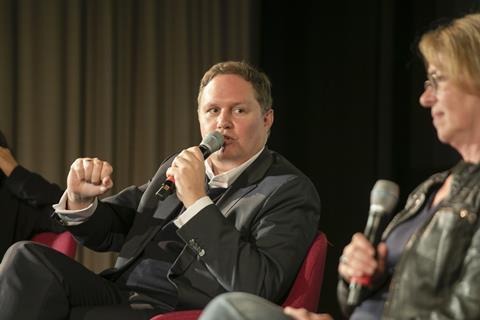
Just eight days after September’s Bundestag election and with various coalition negotiations underway behind closed doors in Berlin, Filmfest Hamburg provided a forum for a reflection on the possible direction for Germany’s film policy over the next four years.
Although the 90-minute discussion on Monday afternoon could only really scratch the surface of the (perennial) issues occupying the German film community, it nevertheless gave some useful food for thought.
Moreover, the arguments set out by the invited speakers could feed into a future debate on the necessary reforms to a new German Film Law (FFG) which is expected to come before the Bundestag in 2022 and go into effect from the beginning of 2023.
Bundestag deputy Tabea Rössner of Alliance 90/The Greens kicked off proceedings by declaring: “we need to put film funding on a new footing and simplify it overall. Perhaps it would be better to have larger sums awarded instead of many smaller ones so that screenplays don’t have to be rewritten and we can then prevent funding tourism.”
She added that other major challenges being faced for the future were how to reflect greater diversity in cinema so that society felt itself adequately represented and there was also a need to address the climate crisis.
“The film industry has a part that it can play here and this must be better promoted through incentives,” she argued.
Carsten Brosda, Hamburg’s minister of culture and media suggested there was “an urgent need” for the future direction of German cinema to become the subject of a “genuine film dialogue” between the political authorities - the federal government and the Länder - and the film industry.
Other areas that needed to be addressed included the responsibility of the streaming services to invest in local production and moving away from solely jury-based funding decisions to the adoption of tax incentive models for certain areas of production.
Brosda similarly called for a greater simplification and coordination between the various funding programmes on both national and regional levels.
His comments were followed with particular attention by the live audience and those watching via a live stream since Brosda is now being tipped in some circles as the likely successor to Monika Grütters as state minister for culture and media under a future administration led by chancellor Olaf Scholz.
Meanwhile, Bundestag deputy Gitta Connemann of Angela Merkel’s Christian Democrats party shared Brosda’s view that there had not been sufficient coordination between the film funding programmes of central government, the Länder and the German Federal Film Board (FFA).
She also pointed out the crucial role played by cinemas located in rural regions “where they are often the last place existing in some communities where people can come together” and made reference in this context to the “Zukunftsprogramm Kino” which Monika Grütters had launched last year to support rural and arthouse cinemas over several years.
“We have the possibility with the new revised FFG to pave the way for more artistic risk taking and to have fewer ‘committee films’ where you have the problem that they either please everybody or nobody,” Connemann noted.
The discussion was part of the “All You Need Is Law” programme of events organised by the local film fund MOIN Filmförderung together with three Hamburg-based media law firms GRAEF Rechtsanwälte, UNVERZAGT and VON HAVE FEY.
The 29th Filmfest Hamburg runs until Saturday (October 9).

























No comments yet